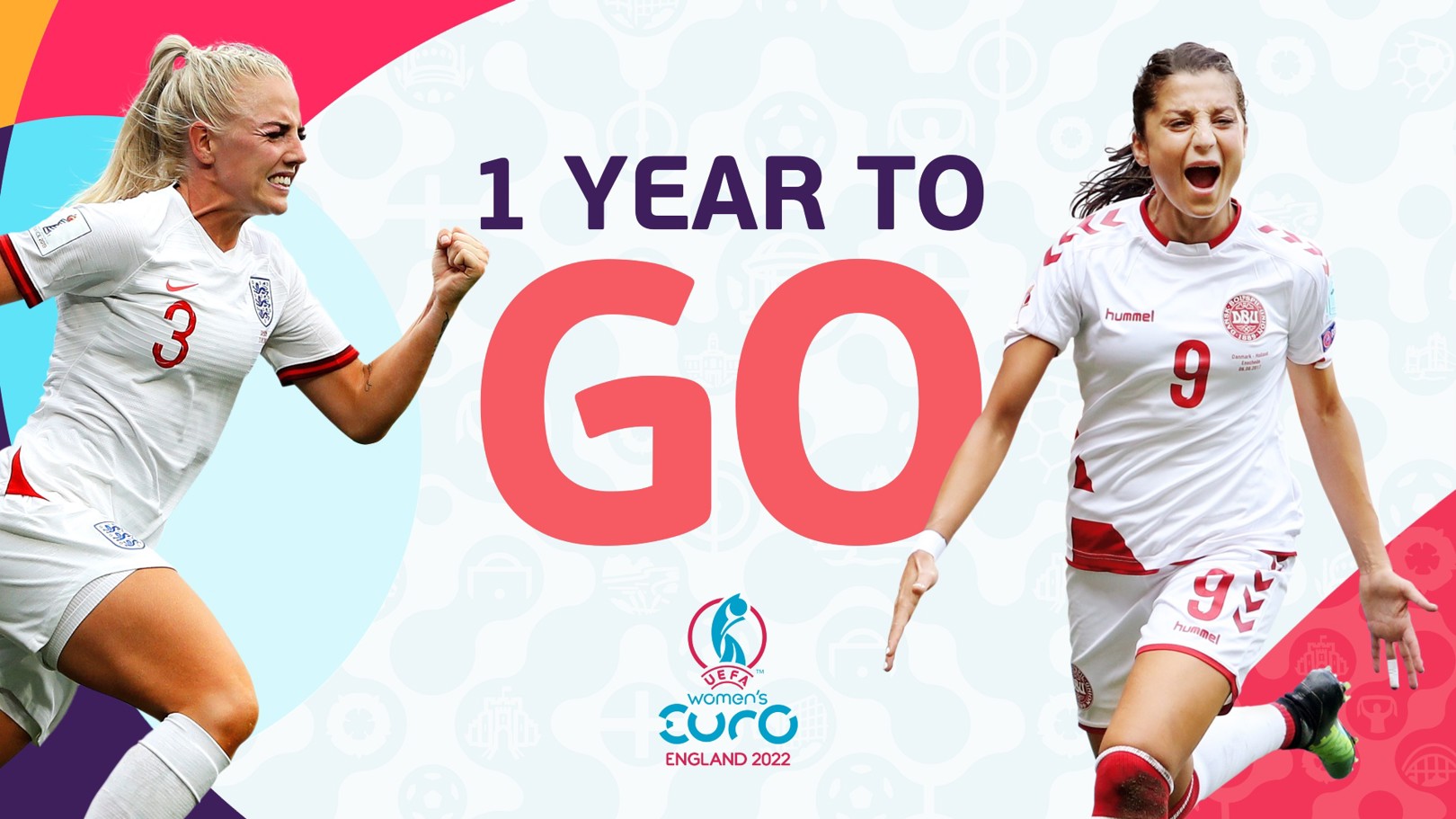EURO 2022 takes place between 6 – 31 July 2022 and the home of City’s women’s first team will play host to three Group D games, as England’s Lionesses compete on home soil as tournament hosts for the first time since 2005.
With more than 700,000 tickets available, the competition is set to mark the biggest women’s European sport event in history.
Here is everything you need to know so you can be part of the action at the Academy Stadium.
Who’s qualified?
Austria, Belgium, England (hosts), Denmark, Finland, France, Germany, Iceland, Italy, Netherlands (holders), Northern Ireland, Norway, Russia, Spain, Sweden, Switzerland.
Tournament format
The 16 nations will be drawn into four groups of four, with the top two in each group qualifying for the knockout stage.
The draw for the group stage is scheduled to take place on Thursday 28 October 2021.
How to buy tickets
Register your interest
Create a UEFA ticketing account now to register your interest before the sales window opens.
Pre-sale: 13 July to 10 August 2021
Visa cardholders will have the chance to purchase their tickets first, alongside those fans that have pre-registered.
Public ballot
The public ballot will open following the group stage draw on Thursday 28 October 2021.
Ticket sales open
Tickets will go on general sale in mid-February 2022.
Ticket prices
Tickets are priced from £5 to £50, with more than half a million tickets priced at £25 or less.
Although all are planning for full stadiums in summer 2022, a robust refund policy will be in place if fixtures are postponed, cancelled, have reduced capacity or a change of venue is introduced due to COVID.
Tournament legacy
EURO 2022’s legacy programme will illustrate how a record-breaking tournament has the power to inspire the next generation of players and fans.
It is hoped the tournament will inspire action to double the number of female-friendly clubs in Manchester and Trafford and upskill 400 female activators to further support the game off the pitch.
As part of their legacy, Manchester and Trafford have pledged to grow the number of female-friendly clubs and establish a club network providing playing opportunities for women and girls of all ages and abilities.
Women and girls from under-presented communities will be welcomed to football, and off the pitch, an increase in females in administrative roles will shine a light on female leaders and volunteers within the game across the region.
These pledges will lead to an increased number of female coaches registered and actively coaching female teams across Manchester and Trafford from 20% to 30%.
400 female activators will be upskilled to further support the game, with an increase in the number of FA-qualified female match officials, progressing from 10% of Manchester FA Match Officials being female to 20%.
Participants will be welcomed to double the number of female-friendly clubs in Manchester and Trafford, which will help support an increase in the number of players aged 16 and over in the area by 20% by 2024, which includes players in Cheshire FA clubs.
City at the EUROs
City had ten players involved at EURO 2017, including seven in the Lionesses squad.
Mie Leth Jans, who has since left the Club, was part of the Denmark side that finished runners-up to the Netherlands, whilst Lucy Bronze and Steph Houghton were both named in the Team of the Tournament.
England’s best European Championship performance came in the 2009 edition and, although City were not a professional outfit at this point, Jill Scott and Karen Bardsley were both part of that squad.








